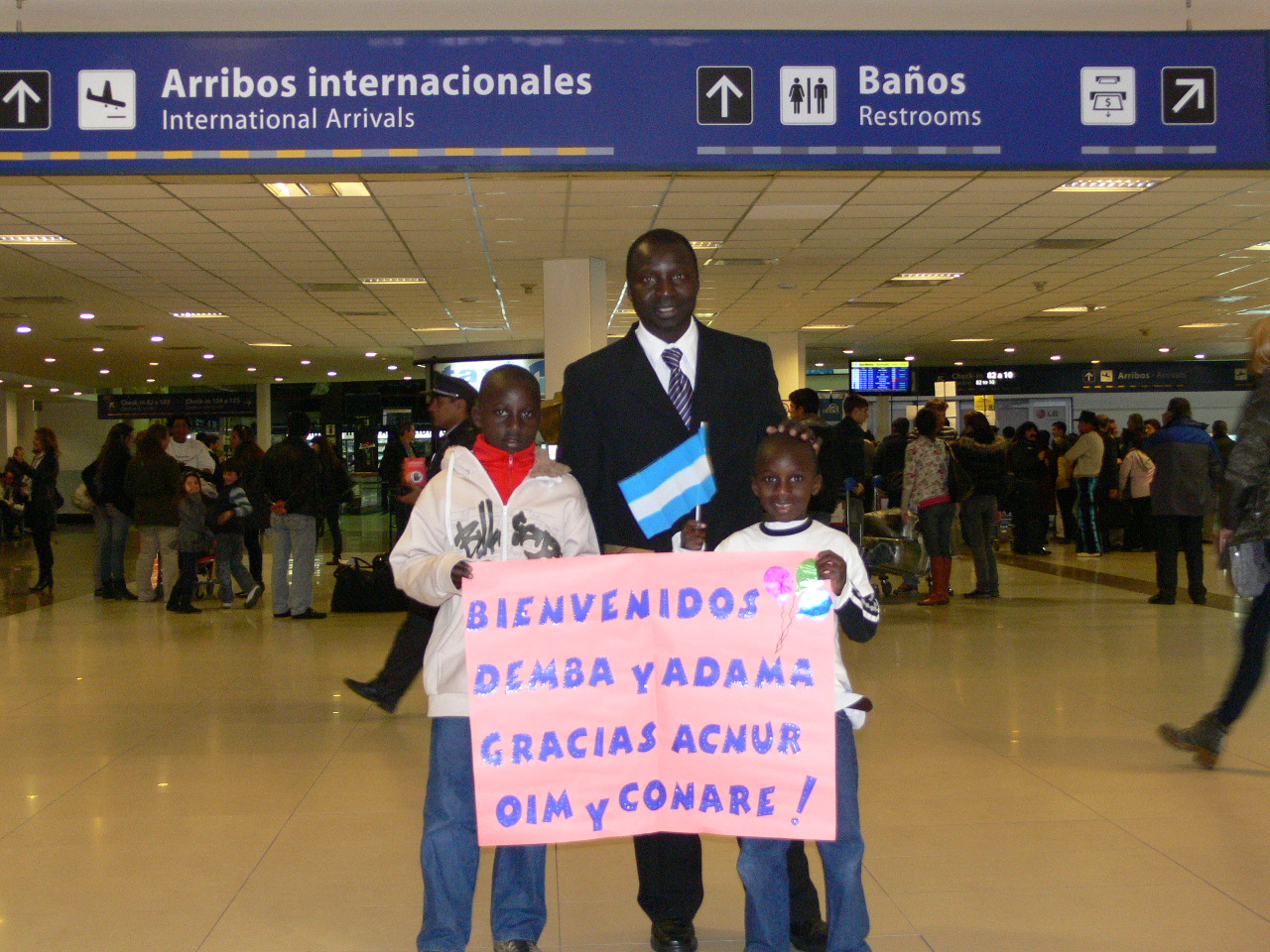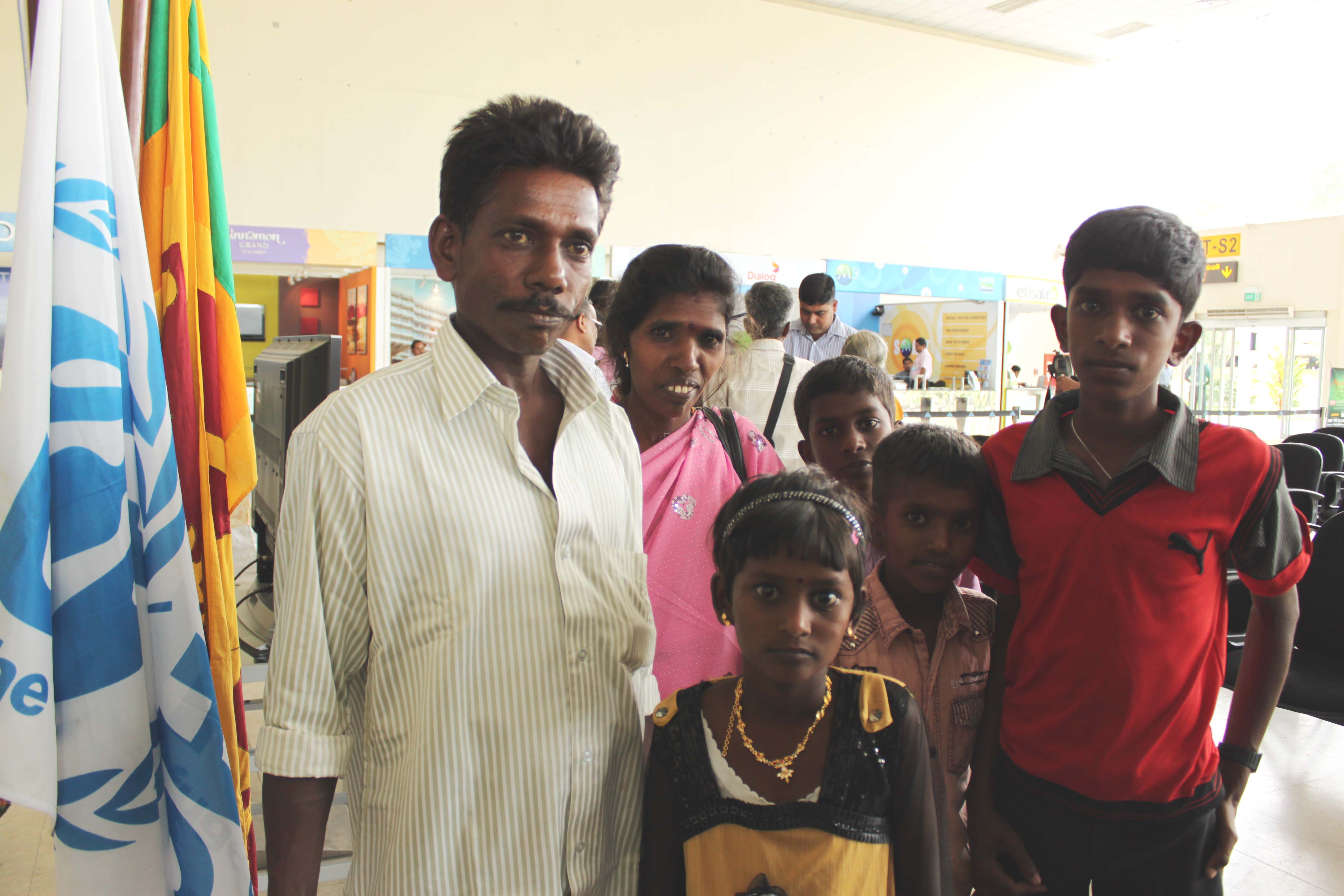1 Longing to Go Home: Dream of return nears reality for Angolan mother
1 Longing to Go Home: Dream of return nears reality for Angolan mother

KILUEKA, Democratic Republic of the Congo, June 24 (UNHCR) - Fifty-year-old Maria Mbuona and six members of her family live in a tumbledown home the size of a garden shed. When it rains, the thatched roof offers no protection and the flimsy walls are scant defence against malaria-carrying mosquitos.
The view of distant hills is beautiful, but the refugee settlement of Kilueka lies on largely barren land and life is extremely tough. Maria has had enough and she wants to go back home after 12 years living in exile in this westerly strip of Democratic Republic of the Congo (DRC).
"I'm tired. Life is very difficult and very expensive; I don't think I can continue," she told recent UNHCR visitors to her home in Bas-Congo province. "I really miss my country and I really want to go back."
She's not the only one - some 43,000 of her compatriots living in hundreds of settlements dotted around the province have said they want to return to northern Angola with the help of UNHCR. The remaining 37,000 Angolans in this country wish to stay, including a small number living in Kilueka.
The first batch is expected to return home next month under an agreement reached in early June between UNHCR and the governments of Angola and DRC. "The signing of this agreement and the adoption of practical measures for the voluntary repatriation of so many Angolan refugees is a significant achievement," said Mohamed Boukry, UNHCR's Kinshasa-based regional representative.
Maria should be among them. She was pregnant when she fled her home in the north-west Angolan province of Zaire and made her way to Bas-Congo in January 1999, during the third and final stage of the 1975-2002 Angolan Civil War, which left huge numbers dead or displaced and destroyed infrastructure.
She and her husband became separated from their eight children when armed assailants attacked their village. "It was midnight and the troops entered the village and started killing people," she recalled, adding that some children were kidnapped; the boys to be soldiers and the girls to work as porters.
She worried about her own children, including the baby in her belly, as she struggled to cover the 65 kilometres to the border and the town of Songololo, about 10 kilometres inside Congo. "I was taken to hospital in Songololo and I could still hear the gunfire."
But the family was reunited in Songololo before being moved to Kilueka, which was a camp at that time. UNHCR provided the refugees with basic assistance. "I lived for a year under that plastic sheeting," Maria said, referring to the ubiquitous shelter material she received.
She said it was difficult leaving everything behind, "including our culture." Between 2003 and 2008, UNHCR ran a first voluntary repatriation programme that saw 59,000 people go back. But many, like Maria, opted to remain in Bas-Congo. "I wasn't ready to go back. I had a child who was sick," she explained.
Some people were also worried about conditions across the border after years of conflict in Angola. In recent years, the Angolans have had to largely fend for themselves and it is not easy. "The refugees here are alone. We have no help," Maria noted.
She owns her flimsy hut and has a small vegetable patch, but that's it. This family breadwinner cannot afford anything more. "To survive, I help others to farm their land and even if I work for many hours a day, I will earn very little money."
This has a knock-on effect. "I have no money to buy food, no money to buy clothes," she said, adding: "Sometimes my husband brings in a bit, but it's difficult and that's not a normal life."
Paying the school bills for her four youngest children is also a problem, Maria said, adding: "We can't get medical care. The price is too expensive." The nearest hospital, moreover, is 30 kilometres away in Kimpese, where UNHCR has reopened an office to help prepare the refugees for their return.
Pedro Matondo, who represents the 508 refugees living in Kilueka, said people had already started returning on their own. The 41-year-old teacher from Cuimba in Zaire province said 15 families have gone back in the past year. Of those still here, "90 per cent of them want to go home," he stressed.
They include Pedro. "I'm waiting for you to name a date," he said. "It's been a long time since we heard of conflict, so now I think I can return." He echoed Maria's testimony about the harshness of life, noting that in the rainy season floods were a hazard and the fragile houses were at the mercy of storms.
Like others, he was grateful to the Congolese. "We have good relations with the Congolese because they have welcomed us."
Now it's time to return. "Peace or not, I suffered too much here and I want to go back to my country," said Maria, sitting under a tree and pounding manioc for the evening meal as the sun sank over the hills.
By Leo Dobbs in Kilueka, Democratic Republic of the Congo









